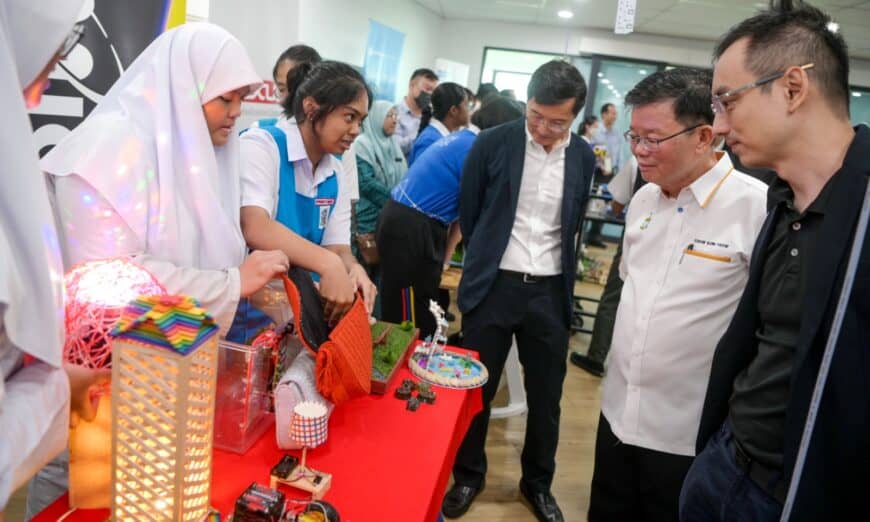PENANG’S collective efforts and the chain reaction of contributions from various parties have propelled the state to the forefront in numerous areas, aiding its goal of becoming a high-income state.
Today, Penang boasts a total of 129 schools equipped with MakerLabs — 92 primary schools and 37 secondary schools.
This achievement not only gives Penang the highest number of MakerLab schools in Malaysia but also surpasses the combined total of such schools in the rest of the country.
MakerLabs are maker spaces in schools equipped with various learning tools, software, and hardware, designed to help students acquire critical 21st-century skills.
Chief Minister Chow Kon Yeow highlighted that these numbers reflect the successful collaboration between the state government, industry players, communities, and schools.
The Penang Science Cluster (PSC) has played a pivotal role in ensuring that schools in Penang maintain close connections with industry experts, offering students an early exposure to real-world applications.
“MakerLabs have enabled tens of thousands of students each year to learn and practice essential 21st-century technical skills such as coding, embedded systems, 3D design, and 3D printing.
“Students have used their creativity and innovation to build projects, solve problems, and compete at state, national, and international levels,” Chow said.
He also noted that through teamwork on their projects, students develop important soft skills such as creativity, collaboration, communication, and critical thinking.
“Some schools and students have excelled to the point where they are eager for more challenging projects, leading to the launch of PSC’s latest initiative, the ‘Advanced MakerLab’ programme,” Chow announced at the programme’s launch ceremony at ViTrox Technologies Sdn Bhd in Batu Kawan.
The Advanced MakerLab programme, spearheaded by PSC, involves 10 organisations and one school alumnus sponsoring 18 secondary schools to develop innovative projects for a year-end competition in Penang.
PSC chief executive officer Datuk Ooi Peng Ee explained that the selected schools would undertake technically challenging projects, guided by engineers from sponsoring multinational companies.
“This six-month programme will prepare the students for a competition during the Penang International Science Fair in November,” Ooi said during a media conference at ViTrox.
He also mentioned that setting up a MakerLab in a school costs around RM60,000 on average, though this varies depending on the number of students.
The first MakerLab in Penang was established in 2017.
Also present at the event were state Youth, Sports and Health Committee chairman Daniel Gooi Zi Sen, who is a PSC board member, Penang Education Department director Datuk Abdul Said Hussain, and ViTrox president and chief executive officer Datuk Chu Jenn Weng.
Story by Kevin Vimal
Pix by Siew Chia En
Video by Muhamad Amir Irsyad Omar

